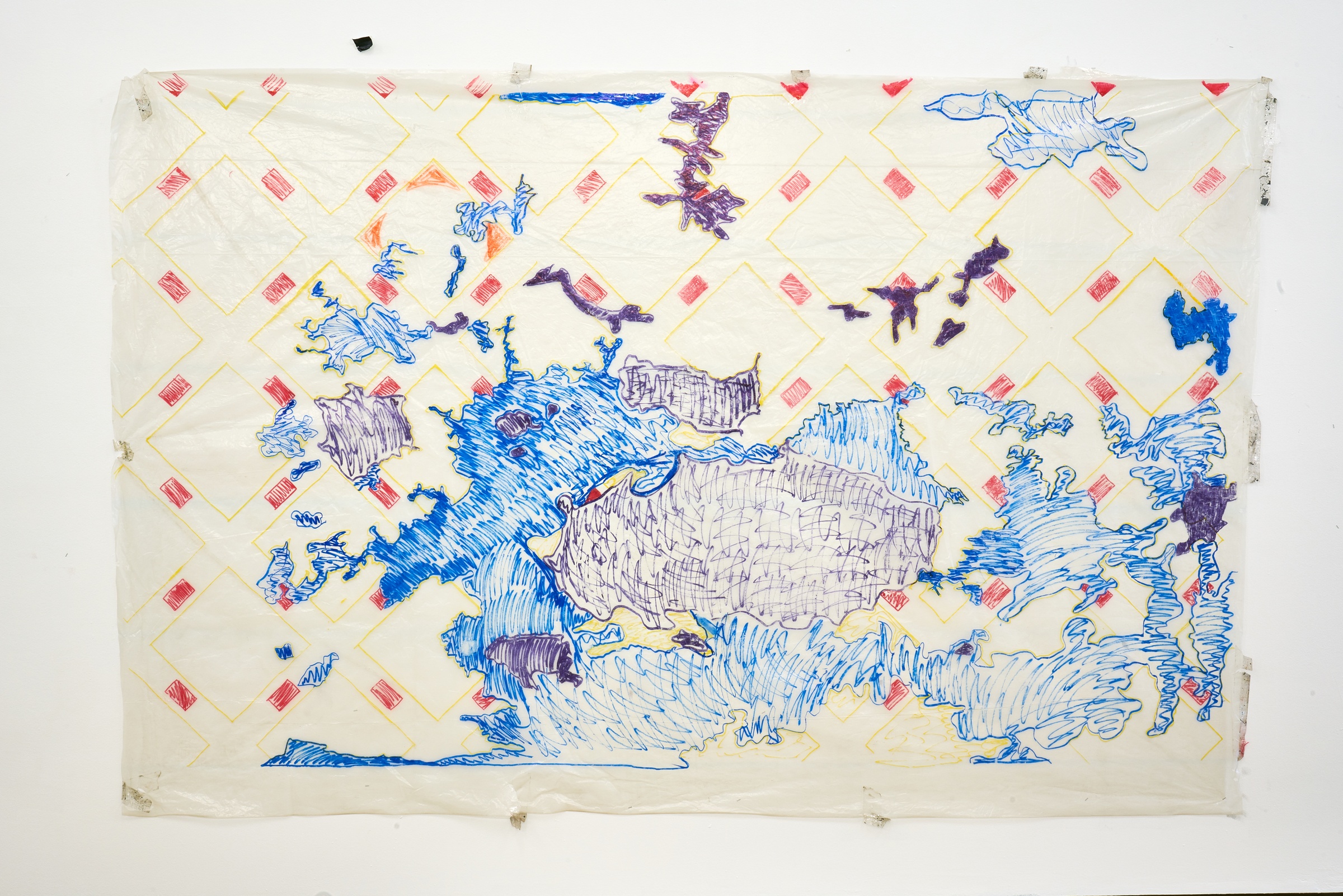
Artist:
Igshaan Adams
Practitioners:
Isaac Facio
Elizabeth Pope
Igshaan Adams
Facilitator:
Kathryn Smith
Preamble
On the occasion of Igshaan Adams’ Open Production, A4 hosts a conversation between Isaac Facio (Textile Technology and Conservation Specialist, Art Institute of Chicago) and Elizabeth Pope (Pre-Columbian Mesoamerican Art, Architecture, and Performance Specialist, Art Institute of Chicago) that engages with two objects in the Art Institute of Chicago’s collection; 'panel fragment' and 'tassel', both woven Nazca artefacts.
Event
Facilitated by A4's senior curator Kathryn Smith, with an introduction into Igshaan’s hybrid studio environment by Josh Ginsburg, Close – Looking offered a space to come together, paying (and playing) close attention, to talk about the conservation of objects, histories, and stories.
Spending time together with ‘object friends’ from the AIC’s collection, Isaac and Elizabeth offered those present (though remote) the opportunity to play in a different time signature – patient, reverent – welcoming the witness as creative and active participant.
Close – Looking revealed secrets and intricacies held within the textile. Remnants of thread as 'scaffolding' within the panel fragment seemed to offer confirmation that the artefact had been left unfinished. It was as yet unclear whether the artefact had suffered significant deterioration over time, and this discovery added complexity to the narrative of the piece.
Readings were shared in the spirit of close listening:
The Glass Flowers by Lorraine Daston, in the anthology Things That Talk: Object Lessons from Art and Science (read by Kathryn Smith).
Slow Looking: The Art and Practice of Learning Through Observation by Shari Tishman (read by Isaac Facio).
The Memory of Bones: Body, Being, and Experience among the Classic Maya by Steven Houston, David Stuart, and Karl Taube (read by Elizabeth Pope).
Vibrant Matter: A Political Ecology of Things by Jane Bennett (suggested by audience-participant Kim Gurney).
–
Isaac Facio heads Textiles Conservation and Conservation & Science at the Art Institute of Chicago. He maintains a research-based practice in art and science, and lectures in Fiber and Material Studies at the School of the Art Institute of Chicago. Isaac received training in textiles and conservation, studio art, and material science and technology from various institutions in Chicago, Manchester and Paris. He is on the Board of Directors of the Textile Society of America and was an artist-in-residence at the Fermi National Accelerator Laboratory.
Elizabeth Pope is a Senior Research Associate for Art of the Americas at the Art Institute of Chicago. A specialist in pre-Columbian Mesoamerican art, architecture, and ritual performance with a particular focus on the cosmology and cosmogony of the ancient Maya, her research seeks to understand the mythological beliefs of communities throughout the Americas within their distinct cultural and historical contexts. Elizabeth has trained as an anthropologist, archaeologist, and art historian, with a BA in Cross-Cultural Studies from Colgate University, an MA in Archaeological Studies from Yale University, and a PhD in Art and Art History at the University of Texas, Austin.
Kathryn Smith is a Senior Curator at A4 Arts Foundation and a senior lecturer in Visual Arts at Stellenbosch University. An interdisciplinary visual artist and researcher trained in forensic facial imaging, her scientific and curatorial work come together as dual expressions of critical care for bodies, infrastructures and non-human things. In both her creative and academic pursuits, Kathryn advocates for vital pracademic exchange between operational, institutional and research environments. She holds degrees from the University of the Witwatersrand, the University of Dundee, and Liverpool John Moores University.